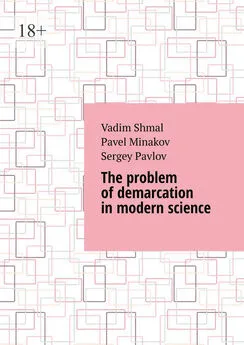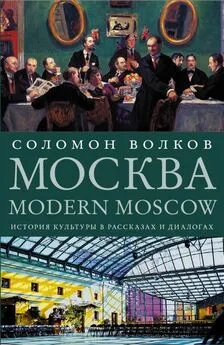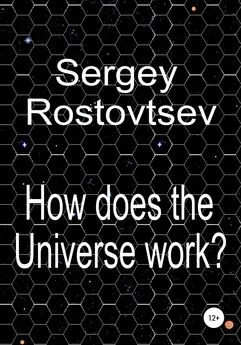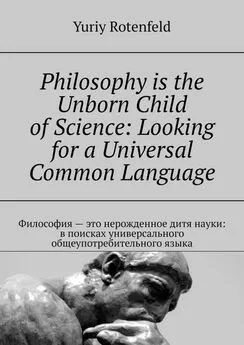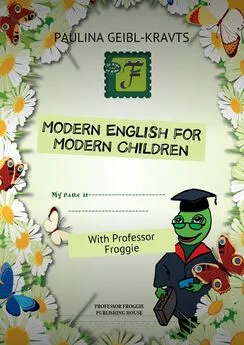Sergey Pavlov - The problem of demarcation in modern science
- Название:The problem of demarcation in modern science
- Автор:
- Жанр:
- Издательство:неизвестно
- Год:неизвестен
- ISBN:9785005532459
- Рейтинг:
- Избранное:Добавить в избранное
-
Отзывы:
-
Ваша оценка:
Sergey Pavlov - The problem of demarcation in modern science краткое содержание
The problem of demarcation in modern science - читать онлайн бесплатно ознакомительный отрывок
Интервал:
Закладка:
However, John Calvin rejected the doctrine that man was limited in his understanding of the universe; Calvin believed that through faith a person can know the universe and understand God.
Jean Calvin also explained Augustine’s epistemology and added that Augustine believed that everyone can receive a clear revelation about God through the Holy Spirit, through faith, and through reason.
In the sixteenth century, Johannes Reuchlin, an associate of Jean Calvin, was the first to write about Augustine’s philosophy, especially his doctrine of intelligence. Reuchlin made little reference to Augustine’s doctrine of grace, but rather to Augustine’s theology. Augustine always believed that the intellectual abilities of people are limited, and Reuchlin believed that this limited ability is the reason for a person’s need for salvation. Augustine taught that man is sinful and, as a result, cannot attain true knowledge. Reuchlin rejected Augustine’s teaching that humans are incapable of understanding the universe and that they need faith in God and use reason to be saved. Reuchlin believed that regarding Augustine’s view that human knowledge of God and the universe is limited, Reuchlin believed that Augustine’s view was wrong.
Augustine, according to Reuchlin, was wrong in teaching that man cannot receive true knowledge of the universe, but that man can attain knowledge through faith and the Holy Spirit in the knowledge of God. Although Augustine believed that human knowledge is limited, Reuchlin believed that human knowledge of the universe is unlimited. Reuchlin believed that with the help of reason, a person can receive a clear revelation about God and the universe.
Reuchlin was the first to suggest that human intelligence has unlimited potential. However, Reuchlin believed that a person’s ability to know is limited and that he can achieve knowledge of God only through faith and through the Holy Spirit.
Augustine believed that God is perfect, just, and good. Reuchlin believed that God was good and perfect, but the attributes of perfection were of such a nature that man could not achieve them. Reuchlin believed that the knowledge of God can be obtained through faith.
Reuchlin’s followers adhered to a form of Calvinism known as systematic theology.
Augustine, like Calvin, believed that human knowledge of God and the universe is limited. John Calvin, however, believed that man’s knowledge of the Universe is not limited, and believed that man is able to understand the Universe.
Calvin believed that man’s knowledge of God and the Universe is limited, but the use of reason can bring this limitation to man. Calvin did not believe that man’s ability to know the universe is limited.
It was not unusual for a sixteenth-century theologian to hold different views of the nature of God.
St. Augustine believed that through the Holy Spirit people can learn. This made him reject the system of modalism and force him to adhere to the doctrine of theosis, according to which a person can achieve a state of perfect communion with God.
Montaigne, a French philosopher and poet, wrote about Augustine’s epistemology and the knowledge of God. Montaigne believed that human knowledge is limited and that God can only be known through faith in God and the use of reason.
Montaigne believed that a person cannot have true knowledge of God without the help of God and the Holy Spirit. Montaigne believed that «the truth of faith is the only knowledge that can produce true knowledge.» Montaigne believes that there is only one and final truth, and that knowledge is obtained through faith in the «absolute one God.» Montaigne believed that faith, according to Augustine, is a means of knowledge, and the truth of faith is true knowledge. This led Montaigne to believe that if a person believes in a being outside the universe and if this being has infinite knowledge, then the person will reach a state that is known to God.
Gottfried Leibniz believed that human intelligence is limited by reason. Leibniz believed that man is limited in his understanding of the Universe, because he is limited by natural laws that limit his ability to perceive the Universe in its entirety.
Interpretation
Aristotle described in detail what scientific knowledge of something means. To be scientific, he said, one has to deal with causes, use logical evidence, and identify universals that are «inherent» in particulars of meaning.
The use of the senses must be consistent with our scientific research. As in Ancient Greece, we are fascinated by the mysteries of the world around us. There is an amazing world of form and formlessness, which is so indescribable, while inside we can see the complex details of reality and make judgments about what is right and what is wrong. We study all aspects of our experience and discover the universals and peculiarities of our experience.
We use the terms of our feelings as if they were nothing more than an abstract idea that we can integrate in our mind to see something or be something, but never think of it as a physical thing.
Here, according to Aristotle, there is an image of the sciences as images of each other. First, we have our own feelings, which we work with as if they were our abstract concepts. We perceive the table and turn it to see the reality of its hardness, the variations in its composition, the presence of chairs around it and the difference in color between them, and then we turn our eyes again to look at our concept. This concept is like a painting or film, and we turn our eyes to see the whole reality of that picture or film.
There is science as a picture of reality that uses our sensory experience, but has nothing to do with it. Our knowledge in physics is similar to our science of feelings and therefore consists of many thoughts of philosophers and scientists who came before us, who looked deeply into this world and saw its beauty and horror. The true image of our physics is a new world that offers an understanding of the nature of the natural world, the material world.
There is science as something that follows and develops from the science of the past. Each of us is born with a scientific education that we must use to solve our current problems and understand what really is in our experience. We must learn everything we can from the first stage of science, sensory experience, and use this knowledge to reach the second stage and then the third. Only in this way can we hope to reach the fourth stage, in which we comprehend the unknown universe of universal qualities.
Let me look at the works of Aristotle and compare them with modern scientific and mathematical journals. I want to compare science with other areas of knowledge such as philosophy, mathematics, and so on.
Modern scientific journals are compiled and edited by an elite group of scientists. Their contributions are assessed on the basis of mathematical and conceptual methods that are equivalent to the interpretations of Plato and Aristotle.
Mathematics – master of everything in science. Thus, all sciences are incomplete, and only mathematics is the absolute in our world.
So what does this have to do with your thesis? What ideas in your own research and what you say about it are wrong? What do you think is not true and how can you learn to understand the world differently?
I have often asked myself this question. While trying to make sense of my research, I found that when I tried to approach my topic scientifically, I completely failed. When I approach it as a pure idea, and not as a real, concrete image, it turns out that it is much easier to understand.
What was my method? I think there are things we can do if we approach our work from a new perspective.
M s can use their own conceptual knowledge. When you look at something in the real world, you can see what it is without trying to put it into words. But when you try to express a concept in words, you see something different, and therefore the translation cannot really reflect reality.
That is why sometimes it is very difficult to understand something, even if we are familiar with it. When someone talks about something, our mind tries to clothe this concept in a simple and understandable form, in words. This is what actually happens when we try to explain something in words. What we mean is not that there is «orange», but there is a whole, complex universe around it. But we don’t have a good way to describe such things, so we try to put it into words.
This is a natural thing, and we do it all the time when we try to describe the concepts of life, money, sports or the universe. There is an idea of what it is, but it is not always the same. When our mind tries to put it into words, we see something different. For example, when we try to describe a plate of food, we do not see a plate full of orange dale e k. We see a complex system of shapes, colors and smells. So if we cannot describe it in words, we try to abstract it into symbols. We use our knowledge of this complex system to try to describe what we see.
When we write an essay, the images we are using will be represented in red, the idea will be represented in green, and the idea of abstraction will be represented in blue. We can denote certain objects in orange, some blue, and so on, but on the way to represent these things will be different. We use this symbol to represent various ideas. This is how we conceptualize things, and since we conceptualize them, this is how we interpret them.
What we see is actually a series of real and imaginary things in a complex combination. The world is a complex system that is constantly changing, so the way we try to describe it is constantly changing. This is what I call the illusory universe.
So why don’t we just see the world as it really is? Well, because we can’t. We do not see it as it really is, and we cannot explain it in words. This is why we use words. This is how we represent what we see.
This is one of the important parts of my approach. I try to approach my topic from a different perspective. I look at this from the point of view of the idea of the object, not from the point of view of how it is actually seen. When my brain tries to explain it, I start looking at it from a different perspective. I’m starting to see this as a series of symbols.
How can this understanding be translated? What do we do when we see something we shouldn’t see? We must abstract ourselves from this. In other words, we move to another level and interpret the scene in terms of symbols. We use symbols to see things, but symbols are not what they actually appear.
We can see what we shouldn’t see, so we interpret the scene and explain it with symbols. To go one level higher, we use these symbols to abstract from the scene and explain it in terms of reality. This level of abstraction is what we have to do to make it easier to understand the world. This level of abstraction is what we have to do to simplify the explanation of the world. The point of this is to help us understand everything we have ever been taught and understand everything that is happening around us.
Logical positivism
Logical positivism, formulated in the 1920s, held that only statements about facts or logical relationships between concepts make sense. These statements are not called sentences, but are said to represent true beliefs.
It should be noted, however, that although «mereological» statements may be false, logical positivists also considered them factual, so the proper name for such statements is «perception».
Logical positivists believe that while such claims are possible, they must be false anyway.
Logical positivism originated in Hegelian philosophy, especially in his dialectics and its criticism. While making some dialectical criticism of determinism, determinism itself was not part of the Marxist analysis.
Читать дальшеИнтервал:
Закладка:
